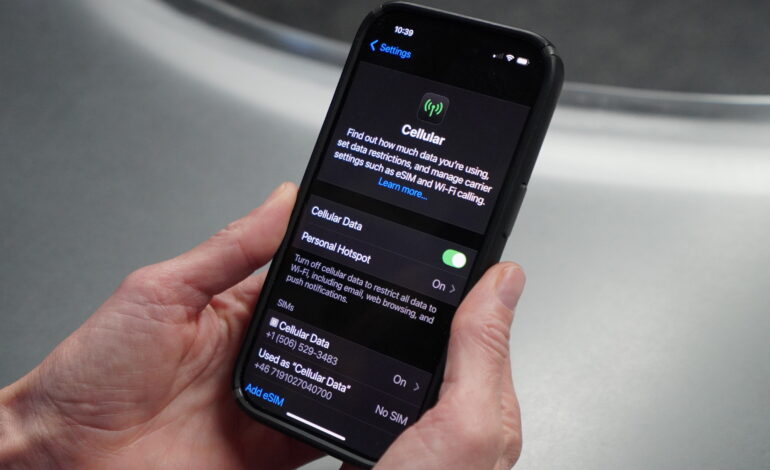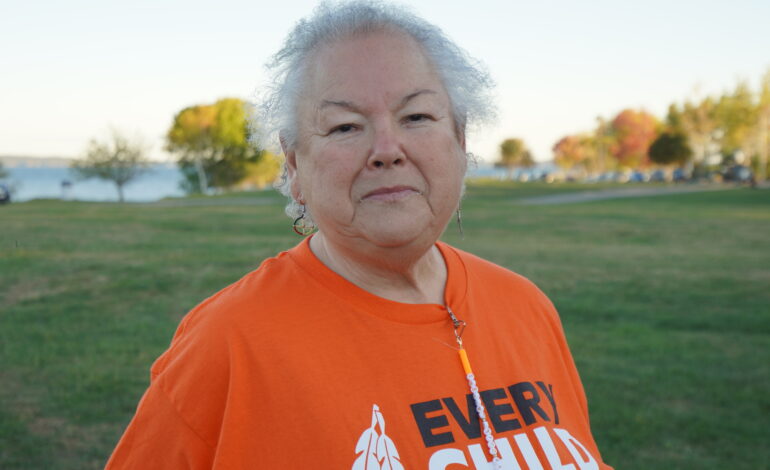
Kate Akagi’s great aunt told her when the remains of hundreds of Indigenous children were discovered at the site of a former residential school – the earth had been keeping them safe.
She is a member of the Peskotomuhkati Nation – one of the founding first nations in New Brunswick alongside the Mi’kmaq and Wolastoqiyik.
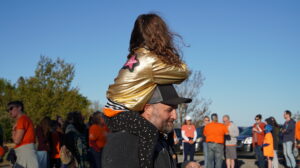
“They weren’t found, Mother Earth kept them safe until people were willing, ready and able to understand why those children were lost for so many years,” she said. “[She] gave them back to the people and now is the time for the healing to continue.”
More than 200 hundred people gathered around Indian Point in Saint Andrews to mark those children – Indigenous – who were the victims of residential schools in Canada.
People there took part in ceremonial smudging, but also a silent walk – to the beat of the Indigenous drum.
Akagi helped organize the event. The tradition started with Phyllis Webstad, a member of the Stswecem’c Xgat’tem First Nation (Canoe Creek Indian Band).
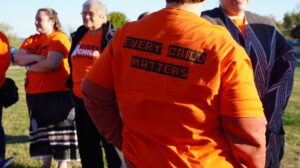
“When she went to school, she and her grannie had saved up their money, and bought an orange shirt and when she went to residential school her shirt was torn off her, her hair was cut and she never saw it again,” Akagi said. “Which was devastating and she was in [a] residential school for a while.”
She said after many years, as the healing process began, elders began to talk about the experience they faced in residential schools.
“They decided they should have orange shirt day,” Akagi explained. “She started to come and talk about what happened to her and how she felt and so did other elders.”
In those days, the orange shirt became the everlasting symbol of every child matters, she said.
The Truth and Reconciliation Commission began in 2008 and ran until 2015 – and Orange Shirt Day was first observed in 2013 – and as of 2021 is now a statutory holiday, as well as a government-based holiday in New Brunswick.
More than 1,000 unmarked graves have been discovered in Canada of Indigenous children who were in residential schools.
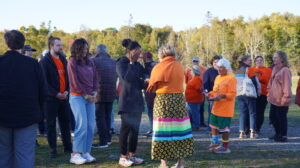
The commission also made 94 calls to action, of which, only 14 have been completed.
“We’re hoping that people … will be more responsive to completing the 94 calls to action,” Akagi said.
At the backdrop of the Atlantic ocean tides, Akagi said people came from across New Brunswick, but also Canada to participate in the ceremony.
“We had a big group,” she said, adding she believed there were more than 200 people in attendance. “We have a big group every year we’ve done this.”
Akagi said the outdoor space they choose is purposeful.
“We do it at Indian Point and we call it Indian Point so you don’t forget the Indian, we are here and we’re here to stay,” she said. “I welcome everybody.”
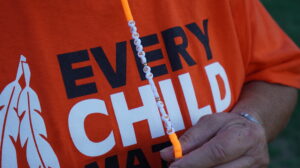
And pinned on her shirt, with white and orange beads, are the words “every child matters,” made for her by a student she spoke to about Canada’s history of residential schools.
“I really think that we need to be unified, and we really need to work together toward that and it is going to take a long time,” she said.


